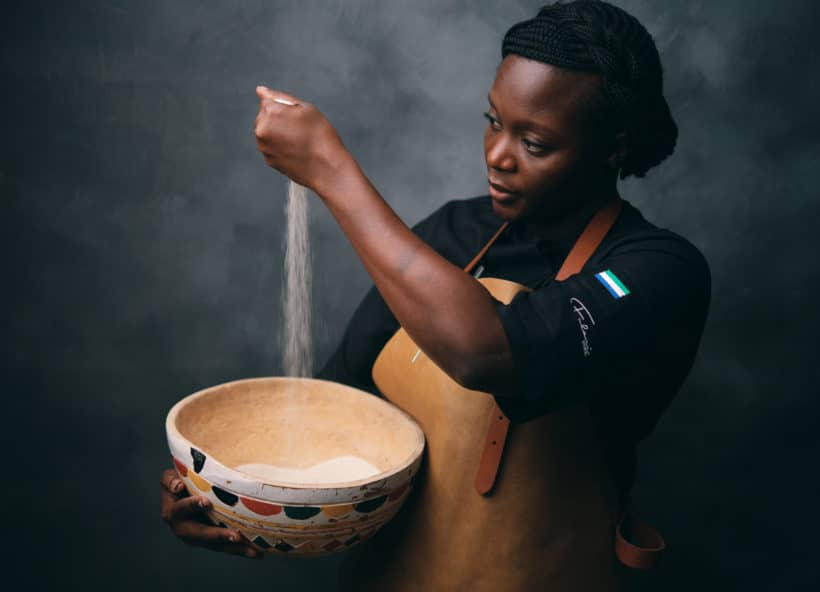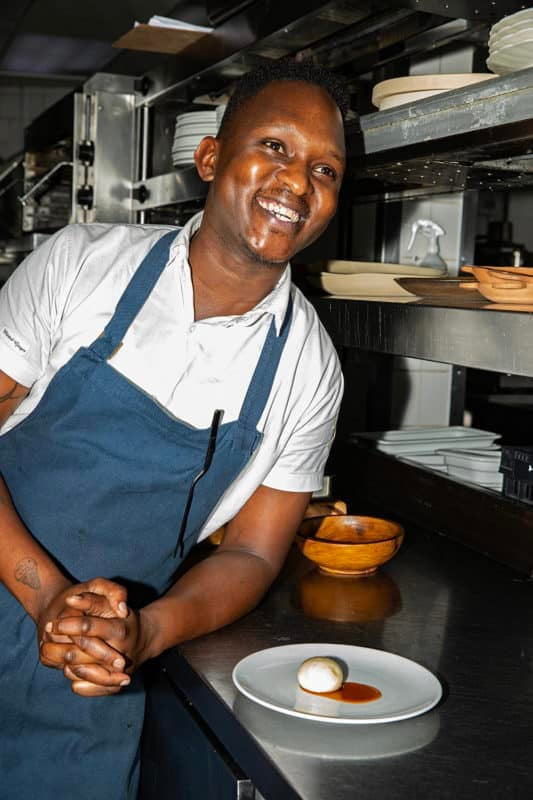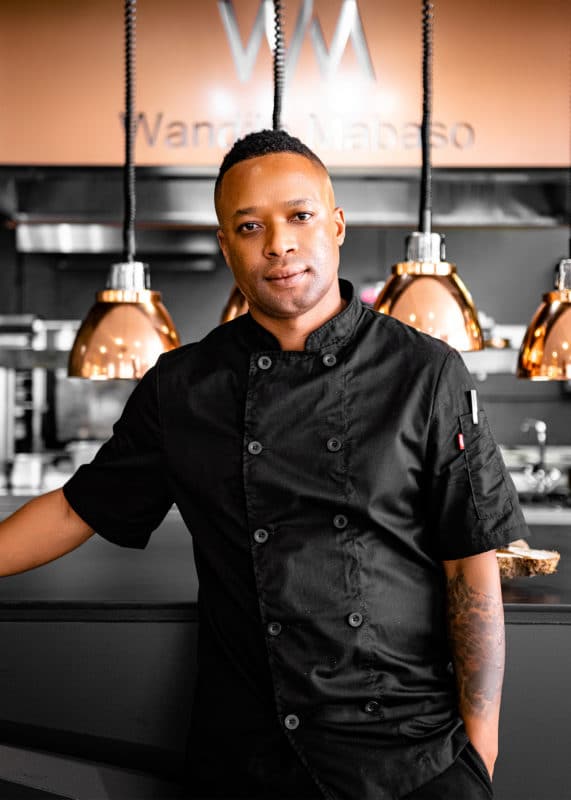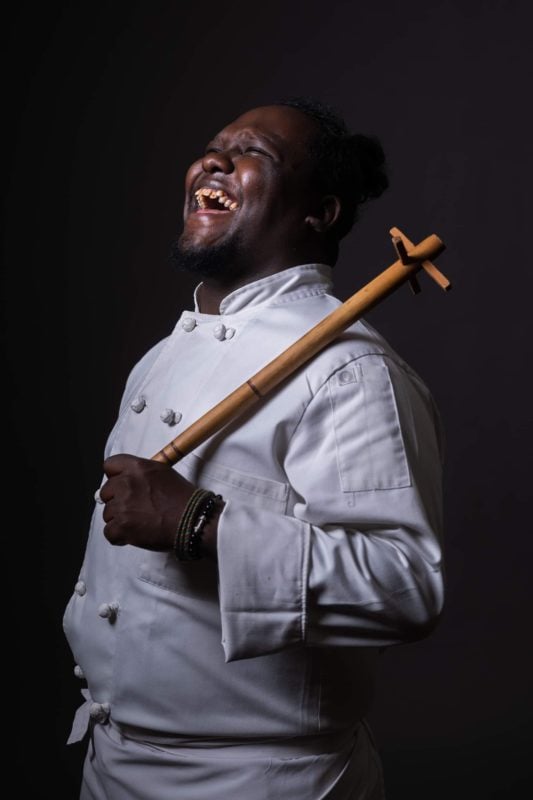
Africa’s culinary landscape is transforming, with chefs showcasing the diversity of African cuisine. From traditional ingredients to innovative techniques, these are the chefs reshaping the continent’s culinary identity.
Africa has long captured the world’s attention, but chef and cookbook author Mokgadi Itsweng says the chefs are leading this shift, through a kind of sankofa. “They’re going back to their roots and sharing it on a plate.”
Itsweng believes that chefs are the link between farmers and consumers, and says that as more African chefs embrace their heritage, they will raise awareness of culturally significant foods that deserve global recognition.
“I think what is bringing evolution to African cuisine is the desire for self-representation,” says Mmabatho Molefe, owner of Emazulwini in Cape Town. Molefe, whose food celebrates her Zulu heritage, says more chefs must embrace their own identity. “Not as a trend but rather as a sense of self-discovery.”

Vusi Ndlovu of Boma on Bree and Mlilo in Cape Town echoes Molefe, saying there’s an element of ‘coming home’: “Many chefs I know have worked for some brilliant people but they weren’t cooking their own food. After Covid, people realised that it is much better to push forward a narrative they love. So cooking food you grew up with, the food you love, with that fine technique, is what’s happening now.”
Storytelling and heritage preservation are undeniably at the core here. Johannesburg-based chef Siya Kobo wants African chefs to weave tradition with innovation to showcase the continent’s rich cuisine. “In the past, African chefs were mostly cooks,” Kobo explains. “Through education and experience, we began to understand who we are and used our learned chef’s skills and techniques, and combined them with our recipes to put ourselves first.” Kobo’s approach is to draw on his Eastern Cape heritage and polished skills to push his cuisine forward.
‘The only continent that hasn’t been fully explored’
Similarly, Wandile Mabaso, who combines Eurocentric culinary expertise with South African heritage at Les Creatifs in Johannesburg, says African chefs have a responsibility to present local ingredients and techniques at the highest level. “Foodies across the globe are always looking for the new, and Africa is the only continent that hasn’t been fully explored,” says Mabaso. “Most of the new generation of chefs like myself have had global classical and fine dining training, and use knowledge and techniques to rediscover what they have on their home soil.”

This rediscovery of forgotten dishes helps evolve traditional cuisine but isn’t limited to South Africa.
Further afield in Africa, many chefs are cooking the food close to their hearts. Take Egyptian-born Mohamed Kamal, who’s preserving Nubian culture through food. “Once a chef knows the basic cooking methods, he can turn anything into an international style – it’s all about the techniques.” He does this by using common vegetables, with ingredients distinctive of Nubian cuisine, like hibiscus, dates, lamb and fenugreek flour.
On the opposite side of the continent, Sierra Leone-based Fatmata Binta is driving a similar force. “I’m a modern-day nomadic chef connected to the Fulani culture, customs, and cuisine of the biggest Nomadic group in West and Central Africa,” she says. “My nomadic restaurant ‘Dine on a Mat’ is an invitation for guests to step outside of their comfort zone and explore flavour and sustenance through the palates of Fulani women.” Like Kamal, Binta’s experiences focus on celebrating Africa’s underappreciated ingredients, giving them the platform they deserve.
In Nigeria is Michael Elégbèdé, who runs ÌTÀN in Lagos. Elégbèdé’s cooking celebrates the depth of Nigerian cuisine and pushes boundaries by marrying tradition with innovation. “My roots have always been a deep source of inspiration in my journey into food,” he says. “The food I create is, for me, a way to drive a cultural renaissance.” He credits other African chefs for showcasing dishes with regional specificity, further highlighting Africa’s diversity. “A factor in this evolution is the element of pride and ownership,” says Elégbèdé.
African food is thriving thanks to these African chefs and others. “Our customs live in our cuisine, therefore it’s critical to preserve and progress African cuisine,” says Kobo.

Mabaso agrees, “We are now making sure the right stories are told.” Molefe adds that Africa has many unwritten cultural practices that need to be documented and kept alive, but these chefs hold much of the power going forward.
Elégbèdé says: “Only we can tell our stories most authentically.”
They contribute to the sustainability of their food systems while preserving their culinary traditions and biodiversity. Binta concludes that “African cuisine is the future” because of its ingredients and superfoods. Through these unique perspectives, these chefs are shaping a rebirth across Africa – and the culinary landscape has never been more exciting.